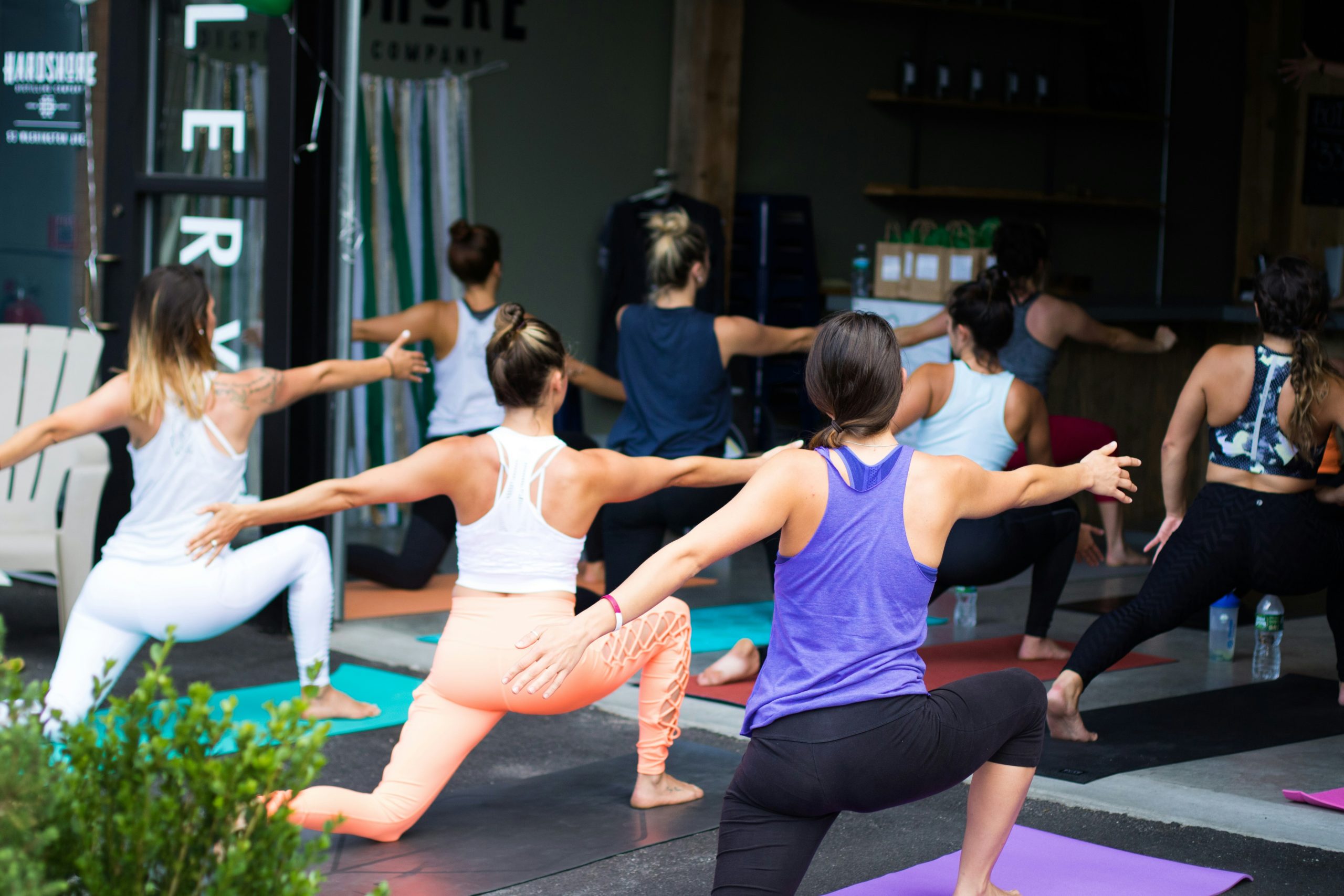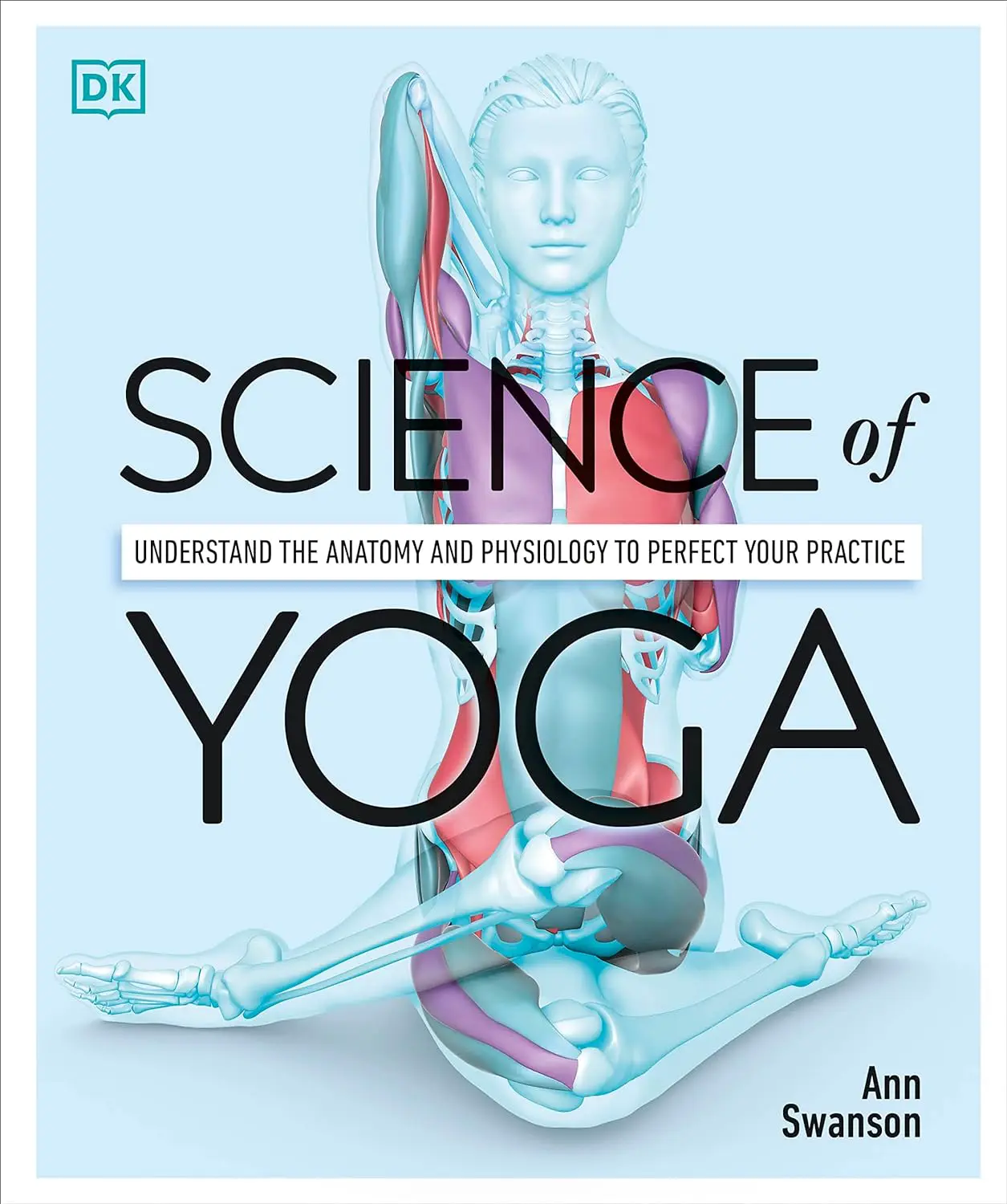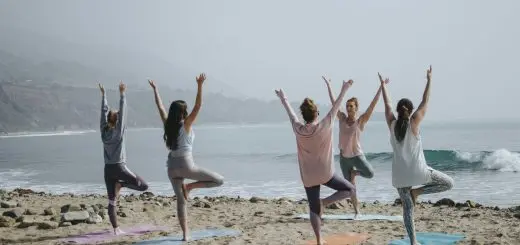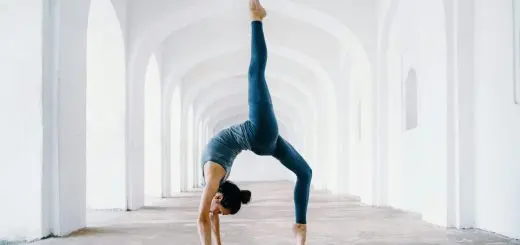Mindfulness Through Yoga: A Complete Guide

Looking for more amazing products? Check out our online store and explore our collection here! Happy shopping!
Before diving in, please note: This post is for informational purposes only. If you’d like to know more about how we approach topics, feel free to check out our friendly Disclaimer Page.
Hey there, amazing readers! 
We’re committed to delivering quality posts, and your support (even just sticking around despite the ads) means everything to us. So, bear with us, and thanks for helping us keep the good vibes rolling. Now, on to the fun stuff!
TRANSLATE BUTTON AT THE END OF THE ARTICLE
A Quick Overview
Yoga has become a beacon of tranquility in our fast-paced, chaotic lives.
It offers more than just physical fitness; it serves as a pathway for calmness and mindfulness.
Combining yoga with mindfulness practices creates a beautiful synergy that can help us navigate stress, enhance our well-being, and cultivate a deeper sense of self-awareness.
In this guide, I will walk you through the principles and practices of mindfulness through yoga, making it an accessible adventure for everyone.
Ready to dive in?
Let’s go!
Discover the Joy of Mindfulness Through Yoga Practice
Finding joy in mindfulness through yoga is like discovering a hidden treasure in your everyday routine.
Each yoga session presents an opportunity to reconnect with ourselves.
When I first stepped onto the mat, I was just looking for a workout.
Little did I know, it would turn into a journey of self-discovery.
Mindfulness allows us to be fully present.
Picture yourself in a flowing yoga class, the gentle hum of soothing music in the background.
As you move through your poses, you learn to focus on your breath and body sensations.
This attention leads to a state of flow that feels invigorating.
Imagine a day where you wake up, stretch, and breathe.
That’s the beauty of integrating mindfulness into yoga—it becomes a daily practice rather than a chore.
I often find that even five minutes of focused breathing can shift my entire mood for the day.
Mindfulness in yoga encourages us to embrace our imperfections.
There’s no need for a perfect pose or flawless technique.
It’s about being present, feeling your body, and letting go of the judgment.
I’ve had plenty of wobbling moments in tree pose, but each stumble has taught me something valuable about resilience.
The joy of this practice lies in its flexibility.
Whether you prefer a vigorous vinyasa flow or a gentle yin practice, there’s a space for you.
Just find the rhythm that resonates with you.
Exploring different styles can keep the practice fresh and exciting.
Imagine sitting in a comfortable pose, eyes closed, with the sounds of nature enveloping you.
In that moment, nothing else matters.
That’s the essence of mindfulness through yoga—it’s a chance to escape the noise and just be.
Combining movement with breathwork amplifies the experience.
Each inhale can fill you with positive energy, while each exhale allows you to shed negativity.
I often visualize my stress melting away with every exhale, and it works wonders!
As you embark on this journey, remember that mindfulness is a practice, not a destination.
Every session is an invitation to discover something new about yourself.
Each small step you take on this path brings you closer to a mindset of peace and acceptance.
Ultimately, the joy of mindfulness through yoga lies in the journey.
It’s about discovering yourself, celebrating small victories, and embracing the process.
So, take a deep breath, step on your mat, and let the journey begin!
Understanding Mindfulness: A Path to Inner Peace
Mindfulness is often described as being aware of the present moment without judgment.
But what does that really mean?
At its core, mindfulness encourages us to notice our thoughts, feelings, and sensations without getting swept away by them.
It offers a refuge from the whirlwind of life.
The practice begins with simple observations.
When I first started my mindfulness journey, I struggled to sit still and just observe.
My mind raced with to-do lists and worries.
Slowly, I learned that acknowledging these thoughts without engaging with them was liberating.
In yoga, we cultivate mindfulness through movement.
Each pose invites us to check in with our bodies and minds.
Are you feeling tension?
Are you holding your breath?
These questions foster self-awareness and pave the way for inner peace.
Mindfulness doesn’t change what happens around us.
Instead, it changes how we respond.
For instance, during a stressful day, practicing mindfulness can help you pause, breathe, and choose your reactions wisely.
It’s like having a superpower!
The beauty of mindfulness is its simplicity.
It can be practiced anywhere—at home, in a busy café, or even during a commute.
Just close your eyes, take a deep breath, and ground yourself in the moment.
Research supports the benefits of mindfulness.
Studies show that it can reduce stress, enhance focus, and improve emotional regulation.
Just a few minutes of mindful practice each day can lead to significant improvements in overall well-being.
Mindfulness teaches us acceptance.
It encourages us to allow our experiences as they are, rather than wishing they were different.
This shift in perspective can be transformative, especially during challenging times.
In yoga, we often encounter postures that challenge us physically and mentally.
The practice invites us to breathe through discomfort and remain present.
Each time we do this, we build resilience and enhance our capacity for inner peace.
Ultimately, understanding mindfulness deepens our connection to ourselves and the world around us.
It teaches us to embrace life as it unfolds, fostering gratitude and joy in even the simplest moments.
The Benefits of Combining Mindfulness and Yoga
Integrating mindfulness into yoga yields a treasure trove of benefits.
The combination enhances both practices, creating a holistic approach to well-being.
Here are some of the key advantages I’ve personally experienced:
Enhanced Focus: Mindful yoga sharpens my concentration.
When I’m fully present on the mat, distractions fade away.
I feel more grounded and engaged in each movement and breath.
Reduced Stress: Engaging in mindful practices calms the mind and body.
I’ve found that my worries dissipate when I focus on my breath.
This reduction in stress can be a game-changer in our hectic lives.
Improved Emotional Regulation: Mindfulness helps me observe my emotions without judgment.
This awareness empowers me to respond rather than react, especially during challenging situations.
Increased Self-Awareness: Yoga encourages introspection.
The combination with mindfulness helps me gain insights into my habits, thoughts, and patterns, leading to personal growth.
Greater Flexibility: Mindfulness enhances my physical flexibility by encouraging me to listen to my body.
I’ve learned to honor my limits and celebrate progress, no matter how small.
Boosted Creativity: Being mindful opens the floodgates to creativity.
When my mind is clear and focused, ideas flow more freely.
This benefit extends beyond the mat into my daily life.
Improved Sleep Quality: Practicing mindful yoga in the evening sets a peaceful tone for bedtime.
I often find it easier to wind down and drift into a restorative sleep.
Enhanced Mind-Body Connection: Mindfulness deepens my connection with my body.
I feel more attuned to physical sensations, leading to a greater appreciation of my body’s capabilities.
Community Connection: Sharing a mindful yoga practice fosters a sense of belonging.
I cherish the bonds formed in classes, where everyone supports each other’s journeys.
Overall Well-Being: The cumulative effects of mindfulness and yoga contribute to a healthier lifestyle.
I’ve noticed improvements in both my mental and physical health, making me feel more vibrant and alive.
Embracing the benefits of combining mindfulness and yoga can transform your life.
As you explore this synergy, be open to the changes it brings.
You might just find yourself thriving in ways you never thought possible!
Essential Yoga Poses to Enhance Your Mindfulness Journey
As we journey into mindfulness through yoga, certain poses can serve as powerful tools for developing awareness.
Here are some essential yoga postures to integrate into your practice:
Child’s Pose (Balasana): This gentle pose is perfect for grounding and introspection.
It invites you to fold inward, allowing space for reflection and relaxation.
Mountain Pose (Tadasana): Standing tall in this pose helps cultivate stability and awareness of your body.
Focus on your breath and feel the ground beneath your feet.
Tree Pose (Vrksasana): This pose encourages balance and concentration.
As you root down, visualize your worries flowing away, leaving you rooted in the present.
Warrior II (Virabhadrasana II): This powerful stance promotes strength and confidence.
Feel the energy radiating from your fingertips as you breathe through the pose.
Seated Forward Bend (Paschimottanasana): This pose invites introspection and a gentle stretch.
As you fold forward, breathe into any areas of tension, allowing them to soften.
Cobra Pose (Bhujangasana): This heart-opening pose invites you to lift your spirit and invite positivity.
Visualize your heart expanding with each breath.
Bridge Pose (Setu Bandhasana): This pose creates a lovely sense of openness and release.
Feel the connection between your body and the earth while lifting your hips skyward.
Cat-Cow Stretch (Marjaryasana-Bitilasana): This dynamic flow helps release tension and encourages movement.
Synchronize your breath with the gentle undulation of your spine.
Corpse Pose (Savasana): Often seen as the culmination of a yoga practice, this resting pose invites deep relaxation.
Embrace the stillness and allow your mind to quiet.
Mindful Breathing in Any Pose: No matter which pose you choose, remember to focus on your breath.
Each inhalation and exhalation can deepen your connection to the present moment.
Incorporating these poses into your practice fosters mindfulness and helps cultivate a deeper awareness of yourself.
As you explore each posture, allow the experience to unfold organically.
Breathing Techniques: The Heart of Mindful Yoga
Breathing—it’s something we often take for granted.
However, when we turn our attention to our breath, we unlock a powerful tool for mindfulness.
Here are some breathing techniques that can elevate your yoga practice:
Diaphragmatic Breathing: Also known as belly breathing, this technique promotes deep inhalation and exhalation.
Place your hands on your belly and feel it rise and fall with each breath.
Box Breathing: Inhale for four counts, hold for four counts, exhale for four counts, and pause for four counts.
This rhythmic pattern calms the mind and centers your focus.
Alternate Nostril Breathing (Nadi Shodhana): This balancing technique involves inhaling through one nostril, holding the breath, and exhaling through the other.
It fosters a sense of equilibrium and clarity.
Extended Exhalation: To activate the relaxation response, extend your exhale longer than your inhale.
For example, inhale for a count of four and exhale for a count of six.
This practice promotes calmness.
Ujjayi Breath: Also known as ocean breath, this technique involves slightly constricting the back of the throat to create a gentle sound during inhalation and exhalation.
It helps maintain focus and rhythm.
Counting Breaths: As you practice, count each breath.
This technique helps anchor your mind and brings awareness to your breath, fostering a tranquil state.
Sighing Breath: After a few rounds of deep breathing, let out a long, audible sigh with each exhale.
This release can help release tension and promote relaxation.
Mindful Breathing During Poses: In every pose, focus on your breath.
Feel how it flows in and out of your body, guiding your movements and enhancing your mindfulness.
Breath Awareness Meditation: Sit comfortably and focus solely on your breath for a few minutes.
Notice its rhythm, depth, and sensations.
This practice sharpens your mindfulness skills.
Breath with Intentionality: As you breathe, set intentions for your practice.
Whether it’s self-love, acceptance, or gratitude, let your breath embody these intentions.
Incorporating these breathing techniques into your mindful yoga practice can deepen your experience and enhance your connection to the present moment.
Remember, it’s all about finding what resonates with you.
How to Create a Mindful Yoga Space at Home
Creating a mindful yoga space at home can transform your practice.
Here’s how to craft a sanctuary that promotes relaxation and focus:
Choose a Quiet Spot: Find a space in your home that feels peaceful.
It can be a corner of a room, a nook, or even your balcony.
The key is to select a spot that invites tranquility.
Declutter: Clear away any distractions or clutter.
A tidy space promotes clarity and calmness.
I often find that even a quick decluttering session can uplift my mood.
Add Natural Elements: Incorporate plants, stones, or crystals.
Nature has a grounding effect and can enhance your mindful experience.
Consider a small indoor plant or a calming image of nature.
Comfortable Mat: Invest in a comfortable yoga mat that suits your style.
A good mat provides cushioning and grip, allowing you to flow through poses comfortably.
Soothing Lighting: Soft lighting sets the mood.
Use candles, fairy lights, or dimmable lamps to create a warm ambiance.
I love lighting a candle before my practice; it feels like a little ritual.
Play Calming Music: Create a playlist of soothing sounds or instrumental music.
Gentle melodies can enhance your experience and help you tune into the moment.
Mindful Decorations: Hang inspirational quotes, artwork, or images that resonate with you.
Surrounding yourself with positivity can uplift your practice.
Incorporate Aromatherapy: Use essential oils or incense to create a calming atmosphere.
Scents like lavender or sandalwood can enhance relaxation and mindfulness.
Create a Personal Altar: Set up a space for personal items that inspire you, such as crystals, photographs, or meaningful objects.
This can elevate the sacredness of your practice.
Limit Distractions: Keep your phone and electronics out of the space.
To truly embrace mindfulness, it’s essential to minimize interruptions during your practice.
By crafting a mindful yoga space, you invite peace and intention into your practice.
Each time you step into this sanctuary, you can escape the chaos of the outside world and reconnect with yourself.
Daily Mindfulness Practices to Supplement Your Yoga
Incorporating daily mindfulness practices into your routine can enhance your yoga experience.
Here are some simple yet effective ways to infuse mindfulness into your day:
Morning Mindfulness: Start your day with a few minutes of mindful breathing.
Before diving into your routine, take a moment to connect with your breath and set intentions for the day.
Mindful Eating: Pay attention to your meals.
Savor each bite and notice the flavors, textures, and scents.
Eating mindfully transforms meals into a nourishing experience.
Gratitude Journaling: Spend a few minutes each day jotting down things you’re grateful for.
This practice shifts your focus towards positivity and fosters appreciation for life’s simple joys.
Nature Walks: Take a daily walk outside and engage your senses.
Notice the sights, sounds, and smells of nature.
Allow yourself to be fully present in the moment.
Mindful Transitions: Use moments of transition, like commuting or waiting in line, as opportunities for mindfulness.
Focus on your breath, feel your feet on the ground, and embrace the present.
Digital Detox: Designate specific times to disconnect from screens.
Use this time to engage in mindful activities like reading, journaling, or simply enjoying silence.
Mindfulness Reminders: Set reminders on your phone to pause and take a few deep breaths throughout the day.
These gentle nudges can help you reconnect with the present moment.
Mindful Listening: Practice listening deeply in conversations.
Focus on the other person’s words without formulating your response.
This practice cultivates empathy and connection.
Body Scan Meditation: Dedicate a few minutes to a body scan meditation.
Lie down comfortably and bring awareness to each part of your body, allowing any tension to release.
Mindful Gratitude Before Sleep: Before you sleep, reflect on the positive moments of the day.
This practice helps you end the day on a high note and fosters a sense of contentment.
Integrating these daily mindfulness practices enhances your overall well-being and enriches your yoga journey.
They remind us to savor life, one moment at a time.
Mindfulness Meditation: A Perfect Partner for Yoga
Mindfulness meditation is an excellent complement to yoga.
This practice invites us to dive deeper into self-awareness and tranquility.
Here’s how to effectively integrate mindfulness meditation into your routine:
Starting Small: Begin with just a few minutes of mindfulness meditation.
Find a comfortable seated position, close your eyes, and focus on your breath.
Gradually increase the duration as you become more comfortable.
Guided Meditations: Explore guided meditation apps or online resources.
These can provide structure and support, especially for beginners or those looking for inspiration.
Use Visualization: During meditation, visualize a peaceful place—a beach, forest, or serene mountain.
Allow your mind to wander there, immersing yourself in the sights, sounds, and sensations.
Breath Awareness: Focus solely on your breath during meditation.
Notice the sensation of your breath entering and leaving your body.
This practice cultivates a deeper connection to the present moment.
Body Awareness: Incorporate body awareness into your mindfulness meditation.
As you breathe, gently scan your body from head to toe, noticing areas of tension and inviting relaxation.
Embracing Thoughts: During meditation, thoughts will arise.
Instead of pushing them away, acknowledge them without judgment and return your focus to your breath.
This practice enhances emotional resilience.
Mindful Movement: Consider integrating mindful movement into your meditation practice.
A gentle yoga flow before meditation can help release tension and prepare your body and mind.
Meditation in Nature: Take your meditation outdoors.
Find a quiet spot in a park or garden, sit comfortably, and allow nature to envelop you as you meditate.
Creating Rituals: Establish a meditation routine that resonates with you.
Whether it’s morning, midday, or before bed, having a consistent practice can deepen your mindfulness journey.
Combining Practices: After your yoga practice, spend a few moments in seated meditation.
This combination allows you to integrate the physical and mental aspects of mindfulness for a holistic experience.
Engaging in mindfulness meditation alongside yoga enriches the overall experience.
It helps cultivate a deeper sense of peace, clarity, and resilience, allowing us to navigate life’s challenges more gracefully.
Overcoming Common Challenges in Mindful Yoga Practice
Every journey has its bumps, and mindful yoga is no exception.
Here are some common challenges you might face, along with tips to overcome them:
Racing Thoughts: It’s natural for thoughts to race.
When this happens, gently redirect your focus back to your breath.
Visualize your thoughts floating away like clouds in the sky.
Impatience: Mindfulness is a practice of patience.
If you feel frustrated with your progress, remind yourself that growth takes time.
Celebrate small victories along the way.
Discomfort in Poses: Discomfort is part of the learning process.
Listen to your body, and modify poses as needed.
Use props or skip poses that don’t feel right for you.
Consistency: Building a consistent practice can be challenging.
Set realistic goals and create a schedule that fits into your life.
Start with just a few minutes each day and gradually increase.
Self-Judgment: Let go of the need for perfection.
Embrace the uniqueness of your journey.
Remember, yoga is not about comparison; it’s about connection with yourself.
Fear of Vulnerability: Sharing your practice with others can feel intimidating.
Start in a comfortable environment and gradually explore group classes when you feel ready.
External Distractions: To minimize distractions, create a mindful space at home.
Set boundaries with family or roommates during your practice time to cultivate your focus.
Physical Limitations: Listen to your body and honor your limits.
Modify poses, use props, or explore alternative practices that suit your needs.
You are your best teacher.
Lack of Motivation: When motivation dips, revisit your intentions.
Reflect on why you started this journey.
Joining a community or class can reignite your enthusiasm.
Frustration with Progress: Remember that mindfulness is a lifelong journey.
Progress may not always be linear.
Embrace the ebb and flow of your experience and trust the process.
By acknowledging these challenges and finding ways to address them, we can cultivate a more fulfilling and enriching mindful yoga practice.
Remember, every step counts, and growth comes with time.
Incorporating Mindfulness into Your Daily Life
Beyond the yoga mat, we can weave mindfulness into our daily lives.
Here are practical ways to cultivate a mindful lifestyle:
Morning Rituals: Start your day with intention.
Set aside a few minutes for mindful breathing or journaling before diving into daily tasks.
Mindful Commuting: If you commute, use this time to practice mindfulness.
Listen to a podcast, focus on your breath, or simply observe your surroundings.
Mindful Conversations: During conversations, practice deep listening.
Put away distractions and genuinely engage with the other person.
This fosters connection and understanding.
Mindfulness in Chores: Transform mundane tasks into mindful moments.
Whether washing dishes or folding laundry, focus on the sensations and movements involved.
Nature Connection: Spend time outdoors and connect with nature.
Observe the colors, sounds, and textures around you.
Nature has a remarkable way of grounding us.
Mindful Technology Use: Set boundaries around technology.
Designate specific times to check your phone or social media, and use the rest of the time mindfully.
Mindful Breaks: Take breaks throughout your day to pause and breathe.
Step away from your desk for a few moments to stretch and reconnect with your body.
Daily Gratitude: Cultivate a gratitude practice.
At the end of each day, reflect on three things you are grateful for.
This simple practice shifts focus towards positivity.
Mindful Sleep Routine: Establish a calming bedtime routine.
Put away devices an hour before bed and engage in relaxation techniques, such as reading or gentle stretching.
Celebrate Small Moments: Throughout your day, take time to celebrate small achievements.
Whether it’s completing a task or simply enjoying a moment of stillness, savor those wins.
Incorporating mindfulness into daily life enriches our experiences and fosters a sense of presence.
These small shifts can have a profound impact on our overall well-being.
Tips for Maintaining a Consistent Yoga Routine
Staying consistent with your yoga practice can feel challenging.
Here are some tips to help you maintain a regular routine:
Set Realistic Goals: Start small.
Set achievable goals, such as practicing for 10-15 minutes a few times a week.
Gradually increase your practice time as you feel more comfortable.
Schedule Your Practice: Treat yoga like an appointment.
Block off time in your calendar to ensure you prioritize your practice.
Consistency breeds habit!
Be Flexible: Life can be unpredictable.
If you miss a session, don’t be hard on yourself.
Simply pick up where you left off and continue with your practice.
Explore Different Styles: Experiment with various styles of yoga.
Trying something new can rekindle your enthusiasm and keep your practice fresh and exciting.
Join a Class: Consider joining local classes or online sessions.
Practicing with a community can provide motivation and accountability, making it more enjoyable.
Track Your Progress: Keep a journal to track your practice.
Note any changes in how you feel physically and emotionally over time.
Reflecting on progress can inspire continued commitment.
Create a Ritual: Develop a personal ritual that resonates with you.
Whether it’s lighting a candle, playing specific music, or wearing special clothing, rituals can enhance your experience.
Listen to Your Body: Remember, yoga is about connection.
Honor your body’s needs and modify your practice as necessary.
Each session can look different based on how you feel.
Incorporate Mindfulness: Bring mindfulness into your practice.
Focus on your breath, thoughts, and sensations.
This awareness will deepen your commitment and make each session more meaningful.
Celebrate Your Journey: Acknowledge your growth and progress.
Celebrate small milestones and remind yourself of the joy and benefits that come from your practice.
By implementing these tips, you’ll build a sustainable yoga routine that becomes an integral part of your life.
Remember, it’s about progress, not perfection!
Join the Community: Mindfulness and Yoga Together
The beauty of mindfulness and yoga lies in the connections we build with others.
Joining a community can enhance your practice and foster a sense of belonging.
Here’s how to connect with others on this journey:
Attend Classes: Participating in local classes introduces you to like-minded individuals.
Shared experiences in a supportive environment can deepen your practice.
Online Communities: Explore social media groups or forums dedicated to mindfulness and yoga.
Engaging in discussions, sharing tips, and seeking support can be incredibly uplifting.
Workshops and Retreats: Look for workshops or retreats that focus on mindfulness and yoga.
These immersive experiences offer a chance to connect deeply with both the practice and fellow participants.
Buddy System: Find a practice buddy!
Connecting with a friend or family member who shares your interest can provide accountability and motivation.
Volunteer Opportunities: Many yoga and mindfulness organizations offer volunteer programs.
Engaging in community service can foster connection and make a positive impact.
Share Your Journey: Consider sharing your yoga and mindfulness journey on social media or blogs.
Your story can resonate with others, creating a sense of camaraderie.
Participate in Challenges: Join online challenges or programs that encourage daily practice.
These initiatives often foster community and provide motivation.
Connect with Instructors: Don’t hesitate to reach out to your instructors.
They often have insight into local resources and community events.
Building relationships with them can enhance your journey.
Create a Group: If you can’t find a community that resonates with you, consider starting one!
Gather friends or acquaintances for regular group practice.
Celebrate Together: Organize events to celebrate milestones, such as completing a challenge or anniversary of your practice.
Sharing these moments strengthens bonds within your community.
Joining a community dedicated to mindfulness and yoga can elevate your practice and create lasting friendships.
Embrace the connections you build along the way!
Conclusion
Mindfulness through yoga is a journey filled with discovery, connection, and transformation.
As we explore the principles and practices discussed, we learn to cultivate awareness, resilience, and joy in our lives.
From finding joy on the mat to embracing mindfulness in our daily routines, every step counts.
Remember, it’s about progress, not perfection.
Each moment spent engaging in mindful practices nourishes our well-being and enhances our connection to ourselves and others.
So, let’s roll out our mats, take a deep breath, and embrace this journey together!
May it be filled with joy, growth, and a sense of inner peace.
Happy practicing!

The Enlightenment Journey is a remarkable collection of writings authored by a distinguished group of experts in the fields of spirituality, new age, and esoteric knowledge.
This anthology features a diverse assembly of well-experienced authors who bring their profound insights and credible perspectives to the forefront.
Each contributor possesses a wealth of knowledge and wisdom, making them authorities in their respective domains.
Together, they offer readers a transformative journey into the realms of spiritual growth, self-discovery, and esoteric enlightenment.
The Enlightenment Journey is a testament to the collective expertise of these luminaries, providing readers with a rich tapestry of ideas and information to illuminate their spiritual path.
Our Diverse Expertise
While our primary focus is on spirituality and esotericism, we are equally passionate about exploring a wide range of other topics and niches 

To ensure we provide the most accurate and valuable insights, we collaborate with trusted experts in their respective domains 
Our blog originally focused on spirituality and metaphysics, but we’ve since expanded to cover a wide range of niches. Don’t worry—we continue to publish a lot of articles on spirituality! Frequently visit our blog to explore our diverse content and stay tuned for more insightful reads.
Hey there, amazing reader! 
Check out our store here and take a peek at some of our featured products below! Thanks for being awesome!












